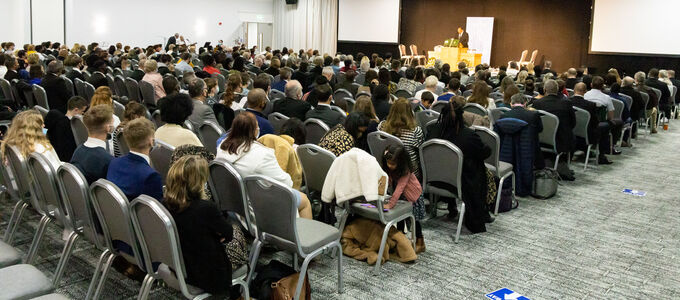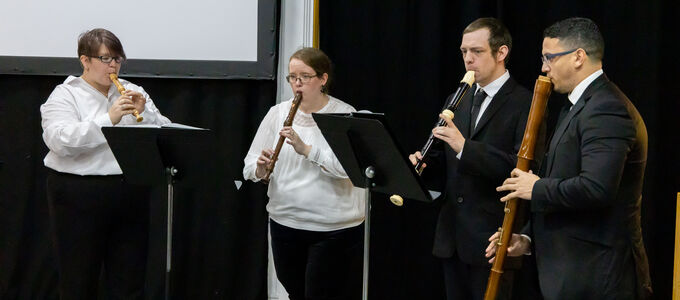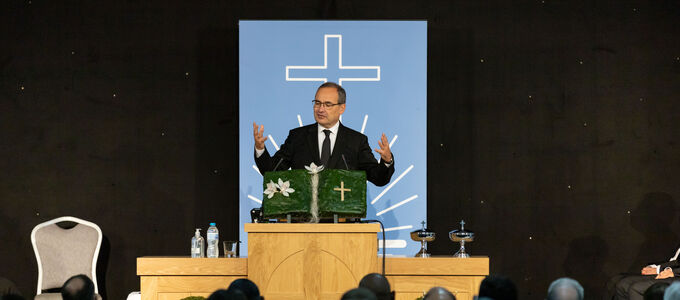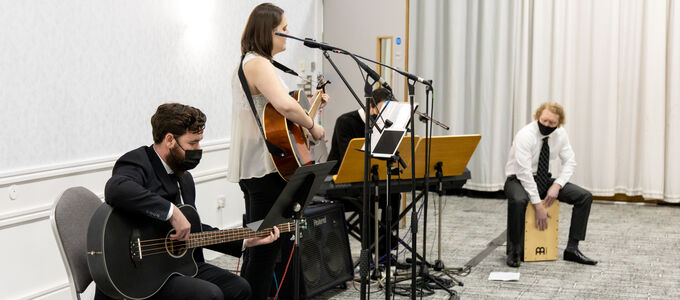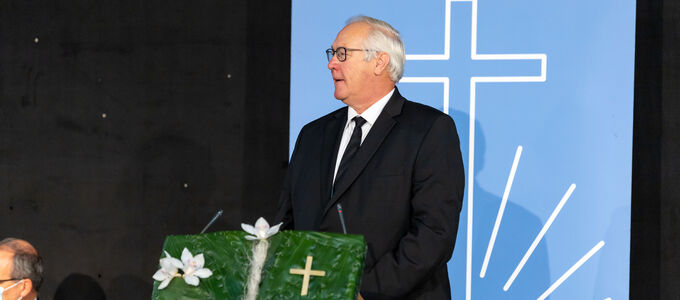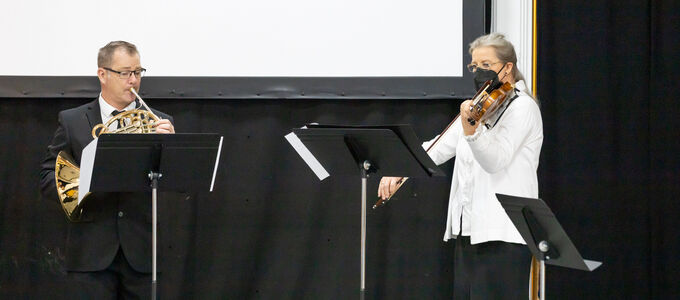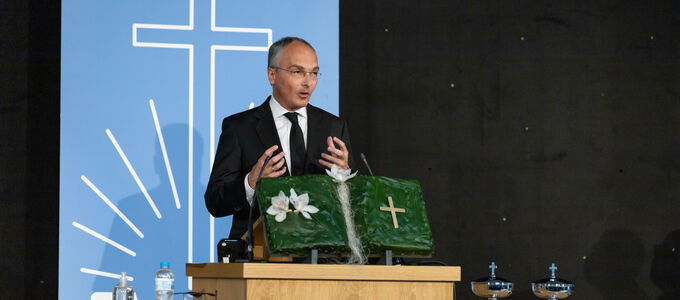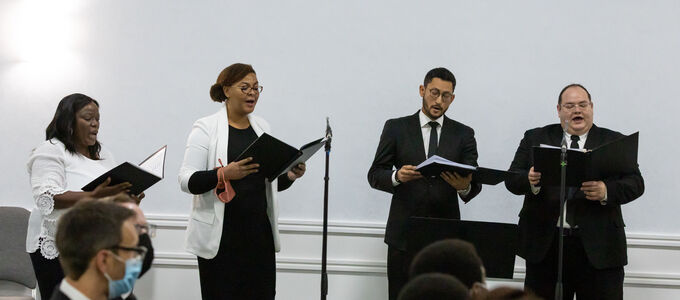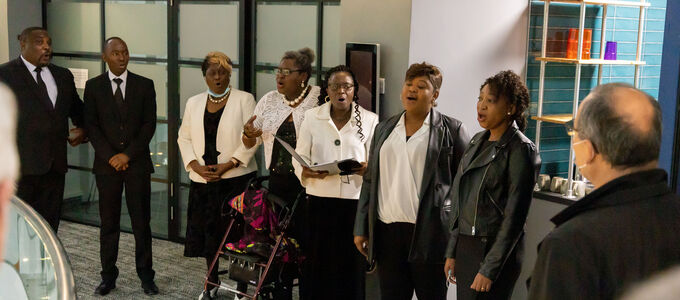The “unknown God”
Paul told the people in Athens about the unknown God. And this is still true: every human being was created in His image and is destined for fellowship with Him. When God calls, man can find Him. For He is always very close to us.
Many gods, many temples: the ancient Athenians even had an altar dedicated to the “unknown god”—for fear of forgetting one. When Paul saw this, he took the opportunity to tell the Greeks about the true God: “And He has made from one blood every nation of men to dwell on all the face of the earth, and has determined their preappointed times and the boundaries of their dwellings, so that they should seek the Lord, in the hope that they might grope for Him and find Him, though He is not far from each one of us” (Acts 17: 26–27).
Proclaiming the truth
Even today people have many idols, Chief Apostle Jean-Luc Schneider said at the start of the divine service in Nottingham, England, on 31 October 2021. And even for some believers God remains unknown: some see Him as a severe judge, others as a business partner from whom salvation can be bought.
“Just as Paul came to Athens to proclaim the true God, the Apostles today are sent to announce the truth: to proclaim the true God, the true gospel, to announce Jesus Christ,” the Chief Apostle said. “And their task is to announce it to the living, but also to the dead in the beyond.”
An outline of the unknown God
Using the words of Paul, the Chief Apostle sketched a picture of the unknown God and His actions:
- “All human beings, without exception, have the same value and the same dignity in God’s eyes: they are made in the image of God.”
- “Every human being is destined to live in eternity with God. That is why we were born.”
- “God makes sure that not even death can thwart His plan.”
- “He calls human beings through His word and His works to come to Him. Everyone is called at a specific moment.”
- “This moment has been chosen by God. One might be called by God during his life on earth, while another might be called in the beyond, and the third one might be called in the kingdom of peace.”
- “When He calls you, then answer Him with faith, renounce evil, and follow Christ. But do it right away, because you don’t know if this call will still be valid in a few years or centuries.”
That is why the Holy Spirit advises: “Today, if you will hear His voice, do not harden your hearts” (Hebrews 3: 7–8).
Making God’s nearness tangible
And then the Chief Apostle explained how close God is.
- The incarnation of the Son of God revealed: “I am not in heaven, far away. I am with you on earth. I share your fate. I will even die because you must die. I am not far away from you.”
- “After His death, Jesus descended into the realms of the dead to bring them the gospel, to announce to them: I am on your side, on the side of the dead.”
- “God is not far away, for salvation is possible. It is not a question of talent, strength, culture, knowledge, or money. It is only a question of faith.”
- “If you follow God’s call, you can have fellowship with God right now. It is not far away in the distance future. You can experience it already now.”
Not only Apostles but all believers have been appointed to proclaim the true God: “We pray for the souls in the beyond, that is the only thing we can do for them. For the living we have to do a little more,” Chief Apostle Schneider said in closing. “We have to help our neighbour to experience that God is close to him. We have to proclaim the gospel with our mouths, with our words, and with our deeds. That is our holy duty. And with the help of God, we can do it.”


